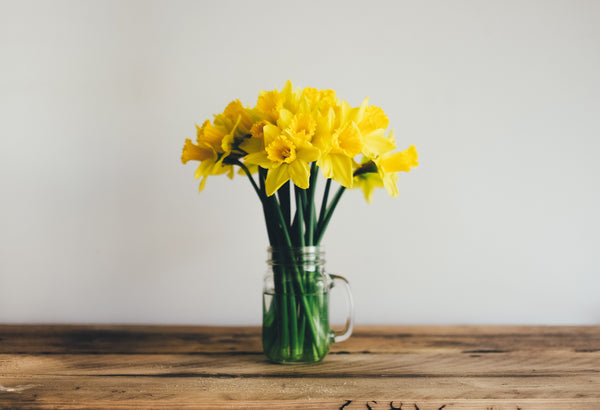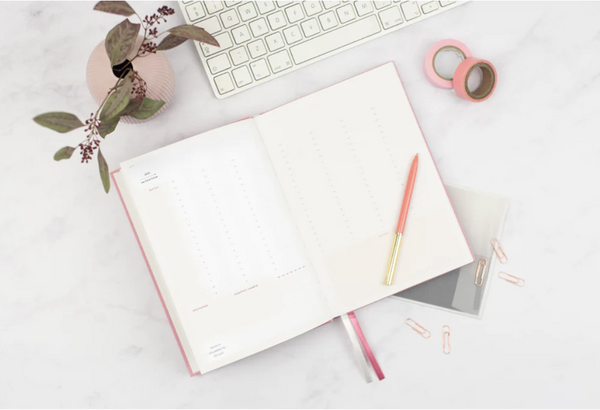Is your glass half full, or half empty?
It’s amazing how much power we have over our thoughts and our perceptions, yet, at the same time, how little power it feels like we have when we are overcome with worry or anxieties.
Some people self-identify as 'glass half full' type of people, while others carry the view as 'glass half empty' as their realist point of view.
In this blog post, we take a look at the power of perspective: how we perceive events and moments has an impact on how we live our lives, as well as how we think about our lives.
The Power of Language
Our internal dialogue and thoughts have the power to give us hope, or the power to leave us feeling hopeless. For example, when we say “I can’t” do a task, versus “I’m choosing not to do" complete a task, we trick our minds into thinking that some external forces are preventing us from doing something we enjoy.
When we shift our language, we are shifting our perspective. Choosing our words wisely has the power to control our perspective, while we have the power to control our language.
Let’s take a look at some ways we can reframe our thoughts to one of a glass half full mentality:
- “I can’t” reframes into, “I’m choosing not to.”
- “I suck at this” reframes into, “I’m still practicing this skill.”
- “I’m not motivated enough to stick with my goals” reframes into, “What will truly motivate me? What brings me joy?”
- “I’m too disorganised” reframes into, “I’m working on creating a more organised system.”
These reframing of thoughts could go on forever. Often we use language that revolves around not being enough or being self-criticising. We aren’t meeting our own expectations quickly enough or well enough, and so we start the internal dialogue that we are no good at whatever task it is.
Maybe that task is writing in your Ponderlily Planner every day, and eventually you drop off, or it could be setting a goal and sticking with it. Maybe you’re learning a new skill at work or in your personal life, and it’s posing more challenging than you anticipated.
Minimal Attachments to a Specific Outcome
The Ponderlily "Today" Notepad helps you keep track of your tasks
Expectations can hurt our success at times. We set goals for ourselves to do one task each day, and as soon as we miss the day, we beat ourselves up. To shift our perspective to a more positive one - a more resilient and persistent one - we need to shift how we approach our goals, as well as our mistakes.
Mistakes are necessary to grow, so mistakes should be a part of the goal. How do we go into experiences with minimal attachments to a specific outcome? We stop attaching our emotions and happiness to certain outcomes.
Let’s look at some examples.
- “I want to exercise because it makes my body feel good,” as opposed to, “I need to work out every single day.” Eventually, you’ll keep doing the activity that makes you feel good, rather than feeling like a failure because you missed a day here or there.
- “I want to track my goals and life in my Ponderlily Planner,” as opposed to, “I have to track my goals and life in a daily planner.” When we have to do a task, it becomes an obligation. When we want to do a task, well, we want to do the task, and we are more likely to follow through with something that we desire.
Sometimes our shift in language is so subtle that it’s changing one small word - need into want, can’t into don’t, must into choose. It might feel nit-picky, but give it a try and see if it makes a difference.
Mindfulness and Perspective
Mindfulness is being aware of the present moments. When we are fully present, it’s a lot easier to experience gratitude, to witness the moments that bring us joy, or even simple things like flowers blooming, leaves rustling across a carpark, or a smile from a stranger.
Being present - right here right now - gives us a bigger picture to look at. We can still feel all the feelings, grief, worry, anxiety, joy, excitement, but we can also see around those emotions into the grander scheme and theme of life that everything is temporary.
Using a Planner for Prompts and Check-Ins
The Undated Weekly Ponderlily Planner can be started at any time
One way to encourage gratitude and mindfulness, as well as that glass half full perspective, is to use a planner or a journal. You don’t have to use your planner every day, but maybe you want to use your planner every day.
Ponderlily has a set of luxury planners that are more than just writing down your schedule and to-do list. Ponderlily Planners provide prompts and opportunities to check in with yourself, to set goals, to dream, to pause and identify what is bringing you joy at this very moment.
You can encourage a habit of using your Ponderlily Planner by choosing to write in it. Create a ritual around journalling that feels manageable and enjoyable. Maybe you write in your diary when you first wake up, drinking some tea, and listening to some meditation music. You could write in your journal at the end of the day, when you’re making plans for what you want to do tomorrow.
Are you a glass half full or glass half empty type of person? Whichever you are, you can still adopt these simple habits of mindfulness and positive self-talk to bring a deeper sense of satisfaction, productivity, and gratitude to your life.





